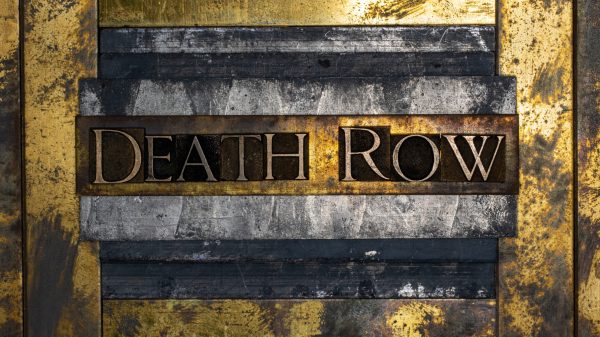By Chip Brownlee
Alabama Political Reporter
MONTGOMERY — The Alabama House Judiciary Committee announced a tentative impeachment schedule Tuesday that would set a vote by the full House on impeachment articles in early May, after almost of year of back and forth over the question.
In a letter to attorneys for Gov. Robert Bentley, Judiciary Committee Special Counsel Jack Sharman laid out a tentative schedule for the coming weeks that would include the release of a written report on the investigation into Bentley. The report on Sharman’s private investigation into Bentley’s should be made public as soon as April 7, according to the schedule.
Following the release of the written report, the Committee would spend the next month deliberating on the report, hearing testimony from witnesses and listening to a presentation from the Governor’s Office. The Committee could vote on sending a report to the full House as soon as May 1, keeping the plan in line with earlier promises to settle the impeachment question by the end of the 2017 Legislative Session.
Depending on the outcome of the Committee’s vote on their report, the House could vote on impeaching Bentley as soon as May 9. If the House chooses to vote affirmatively on an impeachment, the Governor would immediately be suspended from his office, leaving Lt. Gov. Kay Ivey as the State’s temporary Chief Magistrate.
Bentley would remain suspended until he is removed or acquitted by the Senate, which would likely convene in a special session to hold a trial. Under an amendment passed in November 2016, two-thirds of the Senate would have to vote to remove the Governor, otherwise he would return to his job.
Sharman emphasized in his letter that the impeachment schedule is still up in the air because the Governor’s Office may pursue legal action against the Committee’s procedures, which they believe deprive the Governor of due process.
“There are a number of variables, internal and external, that could have an impact on this schedule,” Sharman wrote in his letter to the Governor’s Office on March 23. “In addition, you have indicated that the Office of the Governor, Governor Bentley personally, or both, may file a lawsuit. Obviously, litigation could change any schedule.”
During hearings in April, the Governor’s Office would have an opportunity to present their own case in defense of the Governor. The Governor himself could also testify.
“He will be welcome to be a witness,” Sharman wrote.
Bentley has denied any legal wrongdoing, calling the effort to impeach him “political grandstanding.” An attorney for the Governor criticized Sharman’s tentative schedule, which he believes is unreasonable and rushed.
“Apparently the outside lawyer for the Judiciary Committee has decided that the only way to accomplish the first ever impeachment of an Alabama governor is to violate the law,” Garber said. “The Alabama Supreme Court and the Rules of the House of Representatives require that the Governor be given due process. Common sense dictates that an election not be overthrown without fair procedures. I have confidence that responsible members of the Judiciary Committee will not allow their proceedings to be hijacked and turned into a kangaroo court.”
Garber also criticized Sharman’s plan for his written report and presentation. According to the procedures, Sharman could call witnesses, but he could also present his findings from testimony in other formats. The committee members should be able to judge for themselves the credibility of witnesses, not rely on Sharman’s written report, Garber wrote in a letter back to Sharman.
“In addition to this being an unreliable way to determine the truth, your proposed process would deprive the Governor of the most basic and well-established due process protections: the right to confront and cross-examine one’s accusers,” Garber wrote.
The House Judiciary Committee voted unanimously on March 9 to give its hired attorney the authority to move forward with the private investigation of the Governor, the findings of which would make up Sharman’s report to the committee.
The investigation had previously been paused at the request of Luther Strange while he was still serving as Alabama Attorney General. At the time, Strange said his office was conducting “necessary related work” that could overlap with the House’s investigation.
Legislators assumed he meant a criminal investigation, but Strange later denied it. His successor, Attorney General Steve Marshall, confirmed the investigation, appointing a special prosecutor to oversee the active criminal investigation.
The announcement of the tentative schedule also comes at a time when another criminal investigation of the Governor may soon be coming to a close. The Alabama Ethics Commission is set to meet on April 5, two days before Sharman’s report will be made public, to discuss ethics complaints filed against the Governor last year.
If the evidence submitted at the meeting shows probable cause, a vote by the Commission could move the matter forward to the Attorney General’s Office or the appropriate District Attorney for presentation to a grand jury.
In total, Bentley could be under up to three criminal investigations in addition to the House’s political impeachment investigation, which could easily remove the Governor from his office.
Bentley has been under fire from lawmakers and portions of the media since a sexual relationship with his former top political aide, Rebekah Mason, became public in March 2016.
Since then, lawmakers have been putting pressure on Bentley, who has been accused of using State funds and resources to facilitate his relationship with Mason. Two lawsuits filed last year also accuse the Governor of using ALEA as a political tool to get back at those who didn’t approve of his and Mason’s relationship.
The rapidity of the tentative calendar may come as welcome relief to some lawmakers, who have been critical of the slow pace of the impeachment proceedings, which began in April 2016 after Spencer Collier, then-Secretary of the Alabama Law Enforcement Agency, accused the Governor of an affair.
“We have been empaneled as members of the Legislature to decide on an impeachment resolution, to determine whether the Governor should be removed,” said Allen Farley (R-McCalla), earlier this month.
Email Chip Brownlee at cbrownlee@alreporter.com or follow him on Twitter.






















































